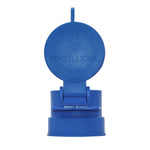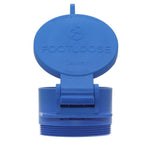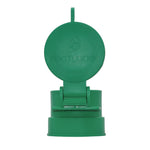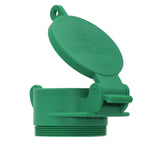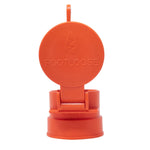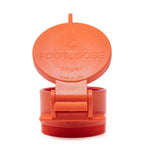You have no items in your shopping cart.
On average, over 41 million people camp in the United States each year. While not all of them use recreational vehicles (RVs), are over 500,000 wholesale shipments of RVs annually, totalling over $20 billion.
While a RV is one of the best ways to travel and see more of the country, handling the basics such as dumping wastewater, can be a challenge. There are two types of wastewater produced when you camp in an RV. Greywater, that is water that does not contain human waste, and black water, which is basically toilet water and does contain human waste. Blackwater is toxic and should not be dumped anywhere but a proper dumping station. Be sure that you are only dumping it in a designated site to prevent environmental damage such as groundwater contamination.
Preparing to dump water from your RV
Before you begin the process of dumping grey or black water from your RV ensure you have the right tools and supplies to do it in a safe way. These supplies include:
- Gloves
- Rinse hose
- Wipes with bleach
- Sewer adapter
- Sewer extension hose
- Coupler
- Hand sanitizer
Steps to dumping RV wastewater
It is best to dump grey or black water when the tank is 2/3 full. When you have the supplies you need and are ready to dump there are several steps for a safe wastewater dumping process. These include:
- Park at the RV dump station with your holding tank drain valve close to the station opening. If your RV has more than one tank, always drain the black one first.
- Put on your gloves and collect the sewer hose. Make sure that the valves on your water tanks are closed.
- First, attach the hose the dump station opening and ensure it is secure by using a heavy rock or the covering of the hole. If you are putting the RV hose into the opening directly, make sure that it goes in about eight to 12 inches deep to prevent any mess.
- Once the hose is secured to the station opening, remove the cap of your RV tank and attach the sewer hose. It is important to be sure that the hose is secured.
- Once both ends of the hose have been secured, open the tank valve.
- After the tank has been emptied, it will need to be rinsed. Locate the rinsing hose and connect it to the tank. Alternatively, you can put water down the toilet a couple of times and flush. This will have the same effect as a rinse hose will.
- Turn on the water for the rinse and let it run for a few minutes. Then turn it off and disconnect the rinse hose.
- Close the water drain valve. Double check to make sure the valves to your tanks are fully closed before you disconnect the sewer hose.
- After you have taken the sewer hose off your RV tank, hold it up to allow all the waste to drain into the station’s opening. You can also run some rinse water through it to clean it.
- Once it has been rinsed, remove the sewer hose from the station opening. Rinse the outside of the hose with water. Ensure that the area around the station opening has been rinsed as well.
- When putting your RV sewer hose away, connect the ends together to keep the contents inside.
- Remove and dispose of the gloves and clean your hands with sanitizer.
- Look to see that your holding tanks display has been reset.
- Lastly, add some water and tank treatment to your black water tank by flushing it through the toilet.
Dumping station courtesy
When you are using a dumping, station remember that there are millions of other RV users that will be passing through. Make a point of keeping it clean and being courteous. Here are some tips:
- Only put your grey or black water into the dump station
- Keep the opening as clean as possible
- Clean up any spills or messes that you make
- Don’t leave behind any garbage
- Ultimately, leave the station in the condition that you would like to find it in
Millions of people travel far and wide across the United States in their RVs each year. While these trips create many memories, it is also inevitable that they also produce thousands of gallons of grey and black wastewater. Proper disposal of this water is important to prevent environmental damage or contamination to others. Being a responsible RV user and dumping your grey and black water appropriately means that others on the road can also enjoy their holiday trips.



